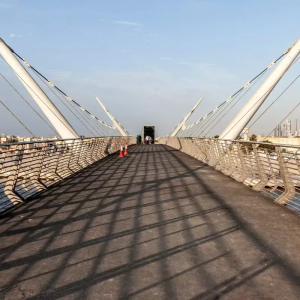Motorists across the country are once again on edge as rumors of another petrol price hike circulate. With fuel prices already climbing steadily over the past few months, the prospect of further increases is raising concerns among consumers and businesses alike.
Why Are Petrol Prices Rising?
Several factors contribute to the frequent fluctuations in fuel prices. One of the primary reasons is the global crude oil market. Geopolitical tensions, production cuts by oil-exporting countries, and supply chain disruptions all have a significant impact on crude oil prices. When crude oil prices increase, petrol prices follow suit.

Additionally, currency exchange rates play a role. Since oil is traded in US dollars, a weaker local currency means higher import costs for fuel. Other factors, including refining costs, transportation, and government taxes, also add to the final price paid at the pump.

The Role of OPEC
The Organization of the Petroleum Exporting Countries (OPEC) has considerable influence over global oil prices. OPEC member countries often adjust their oil production levels to regulate supply and maintain market stability. Recently, production cuts have been implemented to drive prices upward, which directly impacts consumers worldwide.
Beyond OPEC, non-OPEC oil-producing nations also play a significant role. Countries like the United States, Russia, and Canada are key contributors to the global oil supply. Disruptions in their production can send shockwaves through the oil market, leading to sudden price hikes.

What Experts Predict
Energy analysts suggest that the recent surge in global oil prices may lead to another increase in domestic petrol prices. OPEC’s continued production cuts, combined with geopolitical tensions in regions like the Middle East, have added uncertainty to global supply chains. Analysts warn that as long as these factors persist, consumers may see additional price hikes.
Several industry experts recommend that consumers stay informed by tracking international crude oil prices. Many energy research firms provide regular reports on oil market trends, which can offer insight into potential price changes.
Impact on Consumers and Businesses
For the average consumer, a petrol price hike means higher transportation costs. Commuters who rely on personal vehicles or public transport are likely to feel the pinch. Delivery services and logistics companies will also face increased operating expenses, leading to a ripple effect on product prices.
Small business owners, particularly those in sectors heavily dependent on transportation, may struggle to maintain profit margins. Some businesses might pass on the increased costs to consumers, leading to inflationary pressure. Food delivery platforms, taxi services, and e-commerce companies are particularly vulnerable to the effects of fuel price volatility.
Families with limited budgets will feel the hardest impact. Higher petrol prices often translate to increased costs for essential goods, including groceries and household products. In many cases, this results in consumers cutting back on discretionary spending, which can further strain the economy.
Government’s Response
Governments often intervene to mitigate the impact of rising fuel prices through subsidies, tax adjustments, or fuel price caps. However, these measures are temporary solutions and may strain public finances. Additionally, subsidies can distort market dynamics, leading to inefficient fuel consumption.
In recent months, some governments have explored promoting alternative energy solutions to reduce dependence on fossil fuels. Encouraging the use of electric vehicles, expanding public transport networks, and investing in renewable energy sources are seen as long-term strategies to counter fuel price volatility.
In some regions, governments have initiated price monitoring mechanisms to ensure fair pricing. Authorities regularly review global oil prices and adjust local fuel rates accordingly. Consumers are advised to stay updated with announcements from relevant government agencies.
What Can You Do?
While consumers have limited control over petrol prices, there are ways to minimize the impact of a price hike. Here are a few practical tips:
- Drive Efficiently: Maintain proper tire pressure, reduce unnecessary idling, and drive at a steady speed to improve fuel efficiency.
- Carpool or Use Public Transport: Sharing rides or using public transport can reduce fuel expenses.
- Consider Alternative Transportation: Electric vehicles, bicycles, and scooters are more cost-effective in the long run.
- Plan Your Trips: Combine errands to reduce the number of trips and save on fuel.
- Use Fuel Rewards Programs: Many fuel stations offer rewards programs that provide discounts or cashback on fuel purchases.
- Stay Informed: Track fuel prices using mobile apps that provide real-time updates on petrol prices in your area.
Looking Towards Renewable Energy
The shift towards renewable energy sources is becoming increasingly vital. Countries worldwide are making substantial investments in solar, wind, and hydropower to diversify their energy supply. These initiatives aim to reduce reliance on imported fuel and mitigate the effects of volatile petrol prices.
Moreover, the adoption of electric vehicles (EVs) has gained momentum. Major automobile manufacturers are expanding their EV offerings, providing consumers with affordable and efficient alternatives to traditional petrol-powered vehicles. Governments are also offering incentives such as tax credits and charging infrastructure development to accelerate the transition.
The Road Ahead
While it remains uncertain when or if the next price hike will occur, staying informed is essential. Keep an eye on updates from energy regulators and economic reports to anticipate changes. Experts also recommend budgeting for fuel expenses in case prices rise further.
Ultimately, the transition towards renewable energy and sustainable transportation is the most effective long-term solution to counter the volatility of petrol prices. In the meantime, motorists should prepare for the possibility of further increases, adjust their budgets accordingly, and explore fuel-saving alternatives.
Also read: You Won’t Believe the Price Tag on Burj Khalifa’s Sky-High Penthouse












